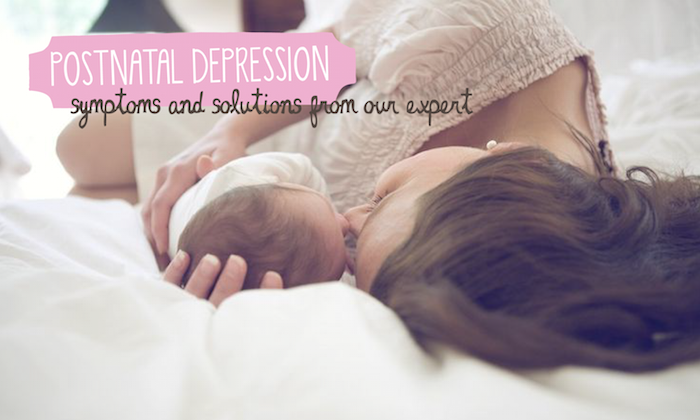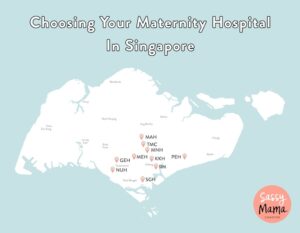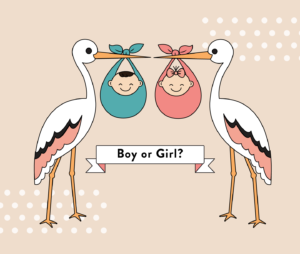
You’re not in this alone, mama. Our expert gives us the best advice on symptoms and solutions for postnatal depression.
With anywhere from 5 to 25% of new mums battling with depression following the birth of their baby, we spoke with Silvia Wetherell from Mindful Mums about postpartum depression and how new mums can get the help they need.
What are the symptoms of postnatal depression? How do I know if I have it?The general symptoms of postnatal depression are quite similar to normal depression and will vary for each woman. Some mothers may experience severe sadness or emptiness while others might feel numb; there could be a belief around being a failure as a mother, while some women might worry excessively about their baby or show a lack of interest.
In my opinion I believe that it is less important that the mother “ticks all the boxes” for postnatal depression and instead asks herself with honesty: are my difficult feelings and depressive or anxious thoughts getting in the way of being the mother I want to be? If the answer is yes or even if you are not sure, get some help. Don’t wait for it to go away on its own as you will miss out on the immense richness of early motherhood with all its ups and downs.
What is the difference between the “baby blues” and postnatal depression?Many women show some depressive symptoms after childbirth — it’s very normal to feel teary, exhausted and emotional after you’ve had your baby. The hormonal changes the body goes through after childbirth can also help explain some of the difficult emotions and thoughts experienced. That’s why it can be tricky to know what is normal “baby blues” and what isn’t.
The baby blues tend to be labelled as postnatal depression if the symptoms intensify and linger longer than a couple of weeks. You can think of it as a continuum with some mild depressive symptoms at one end and severe postnatal depression or even postpartum psychosis at the other end. Help must be sought immediately if the mother experiences severe symptoms such as hallucinations, delusions or has thoughts of harming herself or the baby.
 Why am I suffering from postnatal depression?
Why am I suffering from postnatal depression?
It is normal to want an explanation for what you are going through and yet simply finding the cause may not bring the positive change you desire.
There are a myriad of reasons that can contribute to the depressive symptoms, such as your family background and upbringing, if there has been previous miscarriages, expectations around becoming a mother, what social, emotional and financial support is available, a loss of independence and the resultant identity issues that might bring up, any health issues, and so on. Some women who become mothers for the first time are surprised to find that the strategies they employed in their successful careers are useless when dealing with a baby and those expectations may in fact contribute to feelings of inadequacy.
The situation may also be worsened and maintained by the strategies you use to “get rid of” the depressive and anxious feelings. When you try to control your internal experience it can often backfire and create even more difficult emotions and thoughts. What happens when you try too hard not to feel anxious? What happens when you feel bad about feeling depressed? You get it…it’s a vicious circle.
Can you get postnatal depression much later after the birth of your child? Absolutely. If you are struggling with depressive symptoms anytime in the first 12 months of your baby’s life it is considered postnatal depression.
Also, you can get depression with your second child or third child and so on – it’s not just first time mothers who get it.
How long will it take to get better?
Each mother’s case is unique, which makes it difficult to predict how long it will take for you to feel better. Instead of searching for a cure you might also want to look at it as a process. Through the bleakness of depression you may deepen your awareness of yourself and what matters to you most. That depth of experience can, in the long run, enrich your experience of motherhood. Be kind and compassionate to yourself along the way and be wary of anyone who promises quick results, the journey out of depression is through it, not around it.
How can I get help?
Start by opening up to the people closest to you who you know will be supportive and encouraging. Make an appointment with your GP to talk it through and enquire about counselling options (it might be covered by your insurance policy). Some women may need medication while for others psychological support will be enough to help them through. There are quite a few counsellors and psychotherapists in Singapore so if you don’t want to be on a waiting list make an appointment with a private practitioner. Fees range from $150 to $300 for a 60 minute session. It is important to choose a counsellor with whom you feel comfortable and able to open up to, don’t be afraid to “shop around.”
In the meantime you can find some great resources on these websites:
 View All
View All


 View All
View All


 View All
View All

 View All
View All
 View All
View All


 View All
View All







